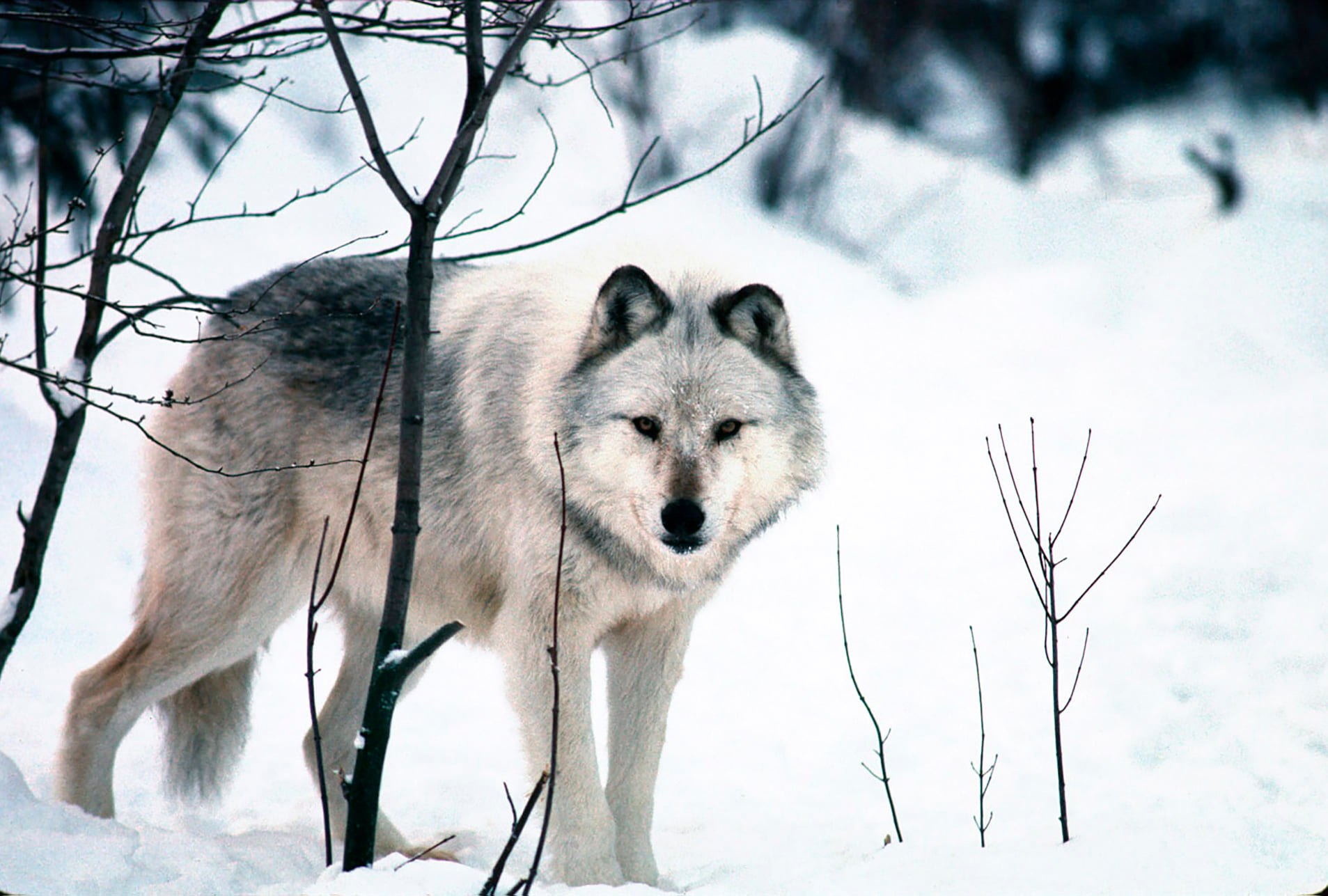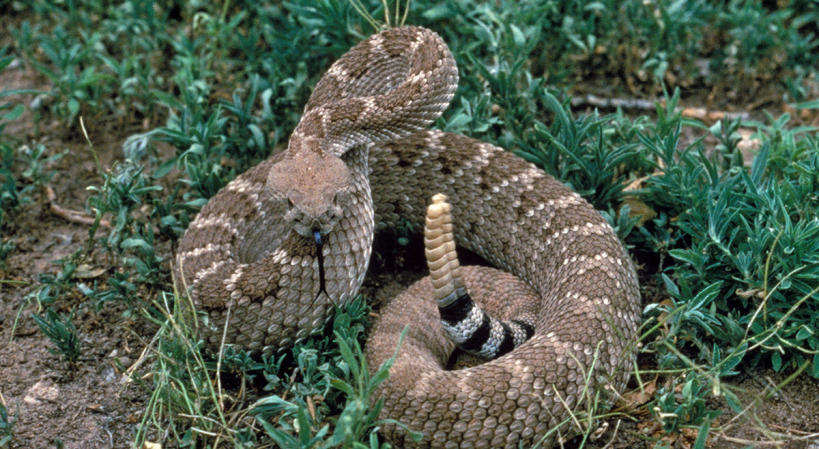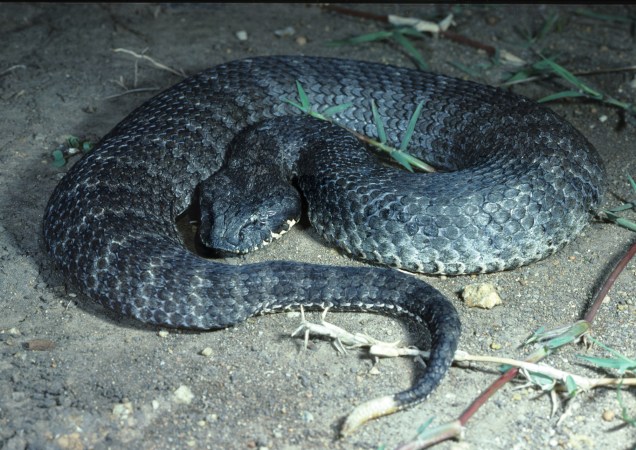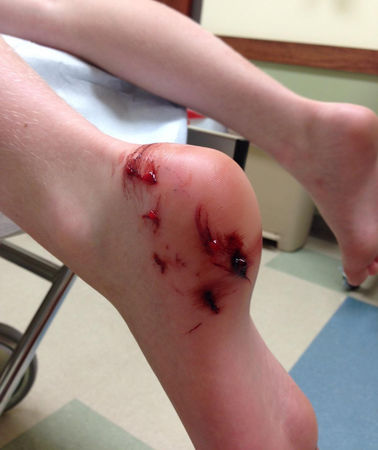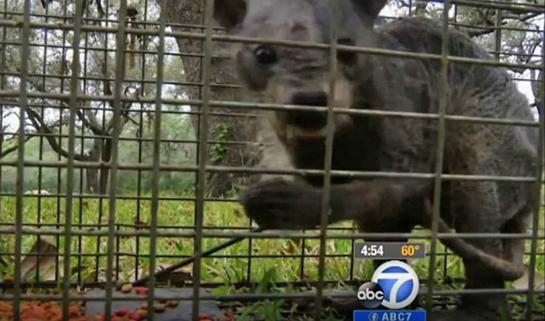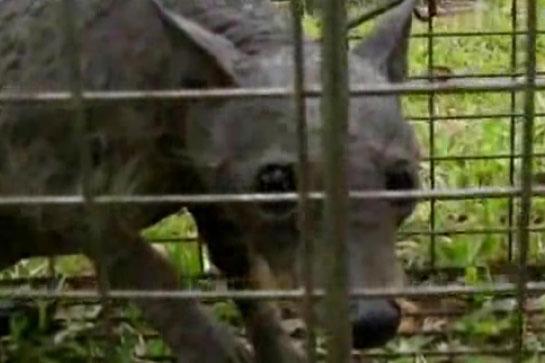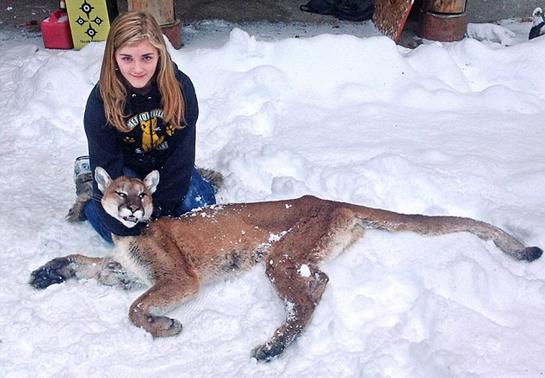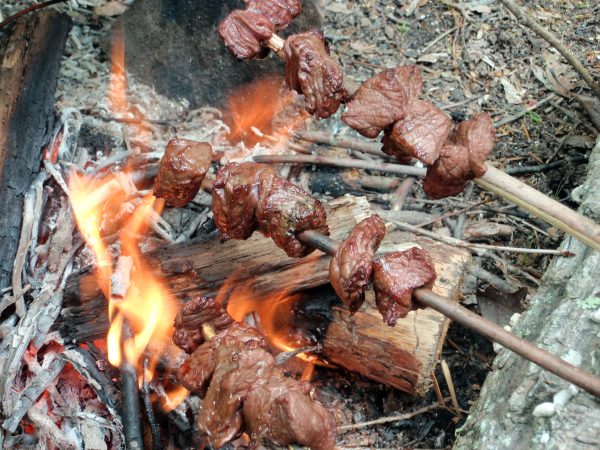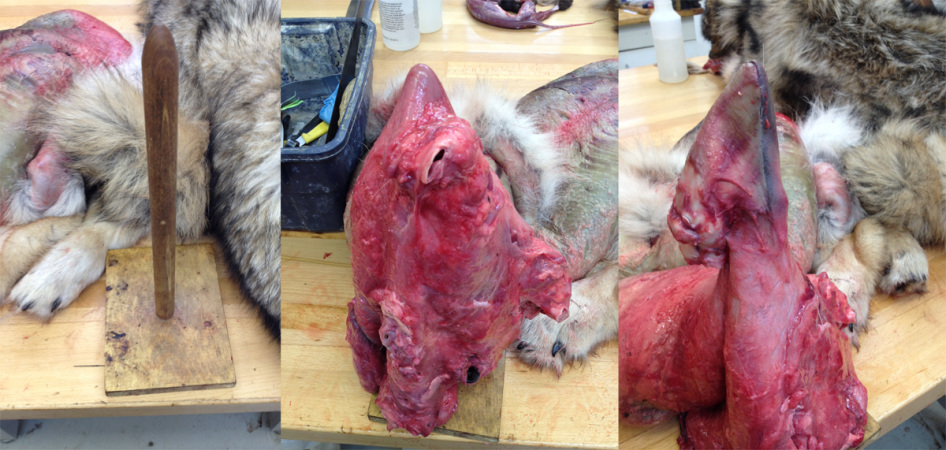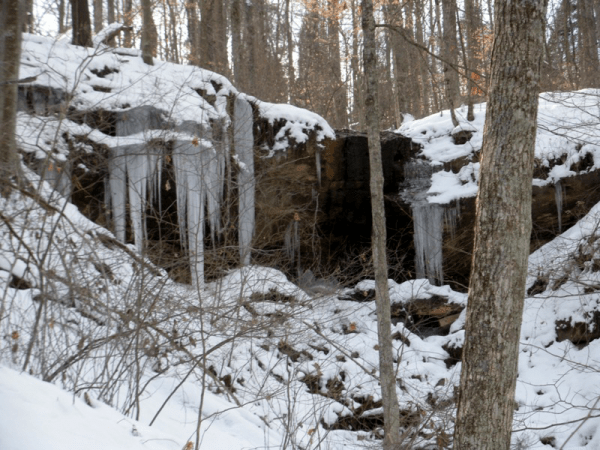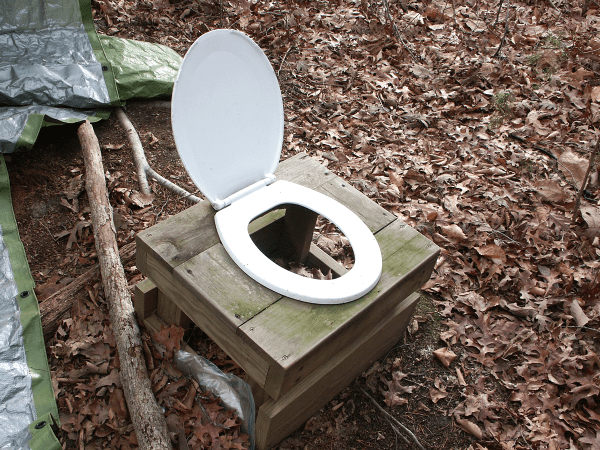A gray wolf attacked a hunting dog in Michigan’s Upper Peninsula last week. The conflict occurred on March 29 on a local trail near Marquette. The Michigan Department of Natural Resources and the Noquemanon Trail Network have since confirmed the attack, and the two organizations clarified some of the details surrounding the incident in a recent Facebook post.
According to Michigan DNR’s public information officer John Pepin, a hunter was training his two beagles on Tuesday near the Holyoke Trail, which is a multi-use trail in a non-residential area west of Marquette. One of the beagles was pursuing a hare and was actively baying about 200 yards off the trail when the wolf pounced and bit the dog’s hind leg.
Pepin said the hunter did not report the wolf attack to the DNR, but Iron Mountain Daily News reports that the hunter made a post about the incident on Facebook later that day. In the post, he claimed that his dog was “carried away by a large male wolf,” and he said the wolf seemed “unintimidated.”
“As a rabbit hunter, I expected that this would happen eventually,” he continued. “But the way and where it happened was shocking.”
After the attack was investigated by the DNR, Pepin confirmed on March 30 that the wolf never acted aggressively toward the hunter, and that the wolf was simply defending its territory. He said that the sound of the beagle actively baying likely attracted the wolf, and that “the wolf was displaying behavior typical of wolves in active pursuit of prey or a canine rival within its territory.”
Pepin also confirmed that the hunting dog was recovered, not taken to a veterinarian after it was attacked, and that it was expected to make a full recovery.
As for the wolf, Pepin explained that the individual is part of a known pack that has been in the area for at least 15 years. Attacks by wolves on dogs have been rare over that time, he said in an email to the local newspaper, with the last wolf-dog conflict in Marquette County occurring in 2012.
He also confirmed, however, that there has been at least one other wolf-dog conflict in the Upper Peninsula so far this year. That conflict involved two hunting dogs in Delta County, and it occurred on January 12. One dog was injured and the other was killed in the attack.
Read Next: Colorado Wildlife Officials Confirm State’s Third Wolf Depredation in 30 Days
According to the DNR’s webpage on wolf-dog conflicts, at least 33 dogs have been killed or injured by wolves in the Upper Peninsula in the past five years. The vast majority of these attacks involve hunting dogs, and “especially those used for hunting bear,” the agency notes.
And now that federal protections have been restored for gray wolves in all but three states under the Endangered Species Act, hunters are hamstrung in their abilities to defend their dogs in the woods. They cannot kill a wolf that is attacking their dog—unless the wolf is also endangering a human life.
“Wolves can only be killed if they are a direct and immediate threat to human life,” according to the DNR, which estimates the Upper Peninsula’s current wolf population at around 600-700 individuals.

